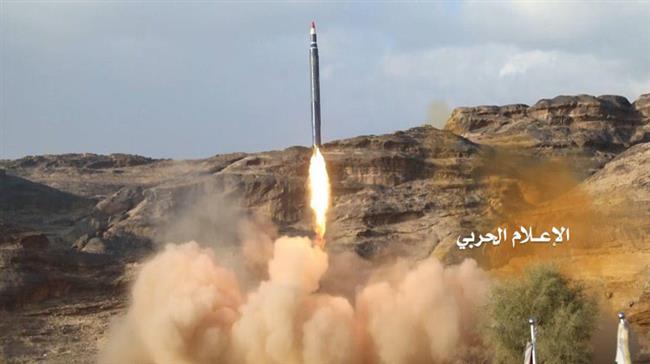
RNA - “The Yemeni army is not after bombarding (other countries), but cannot also sit back. From now on, the capitals of the Arab coalition members will be no longer safe,” Mohammed Abdelsalam, a senior spokesperson for the Houthis, told Qatar's pan-Arab broadcaster Al Jazeera on Thursday.
He added, “We will not kill; we will not bombard, but will not also sit idly”.
The remarks came after the Yemeni army on Thursday evening launched an airstrike against Abu Dhabi International Airport, using a domestically-built long-endurance Sammad-3 (Invincible-3) unmanned aerial vehicle.
The Ansarullah official further rejected reports that Iran was providing military assistance to Yemen and said, “The Yemeni army has ballistic and naval missiles, and have developed them inside the country”.
He added, however, that Ansarullah has no plans to cut off relations with the Islamic Republic.
Elsewhere in the interview, Abdelsalam stressed that doors to a political settlement to the Yemen crisis are not closed yet and that Ansarullah was ready to reach an agreement with other Yemeni groups, including Yemen's ex-president Abd Rabbuh Mansur Hadi, albeit without foreign intervention.
According to Press TV, Saudi Arabia and some 20 of its allies, including the United Arab Emirates, Morocco and Sudan, launched a brutal war, code-named Operation Decisive Storm, against Yemen in March 2015 in an attempt to reinstall Abd Rabbuh Mansur Hadi, Yemen’s former president and a staunch ally of Riyadh, and crush the popular Houthi Ansarullah movement.
The movement, which is a significant aid to the Yemeni army in defending the country against the invading forces, has been running state affairs in the absence of an effective administration during the past three years.
The imposed war initially consisted of a bombing campaign but was later coupled with a naval blockade and the deployment of ground forces into Yemen.
The Yemeni Ministry of Human Rights announced in a statement on March 25 that the war had already left 600,000 civilians dead. The war and the accompanying blockade have also caused famine across Yemen.
The Saudi-led aggression has also taken a heavy toll on the country's infrastructure, destroying many hospitals, schools, and factories. The United Nations has already said that a record 22.2 million Yemenis are in dire need of food, including 8.4 million threatened by severe hunger.
A number of Western countries, the United States and Britain in particular, are also accused of being complicit in the ongoing aggression as they supply the Riyadh regime with advanced weapons and military equipment as well as logistical and intelligence assistance.
847/940